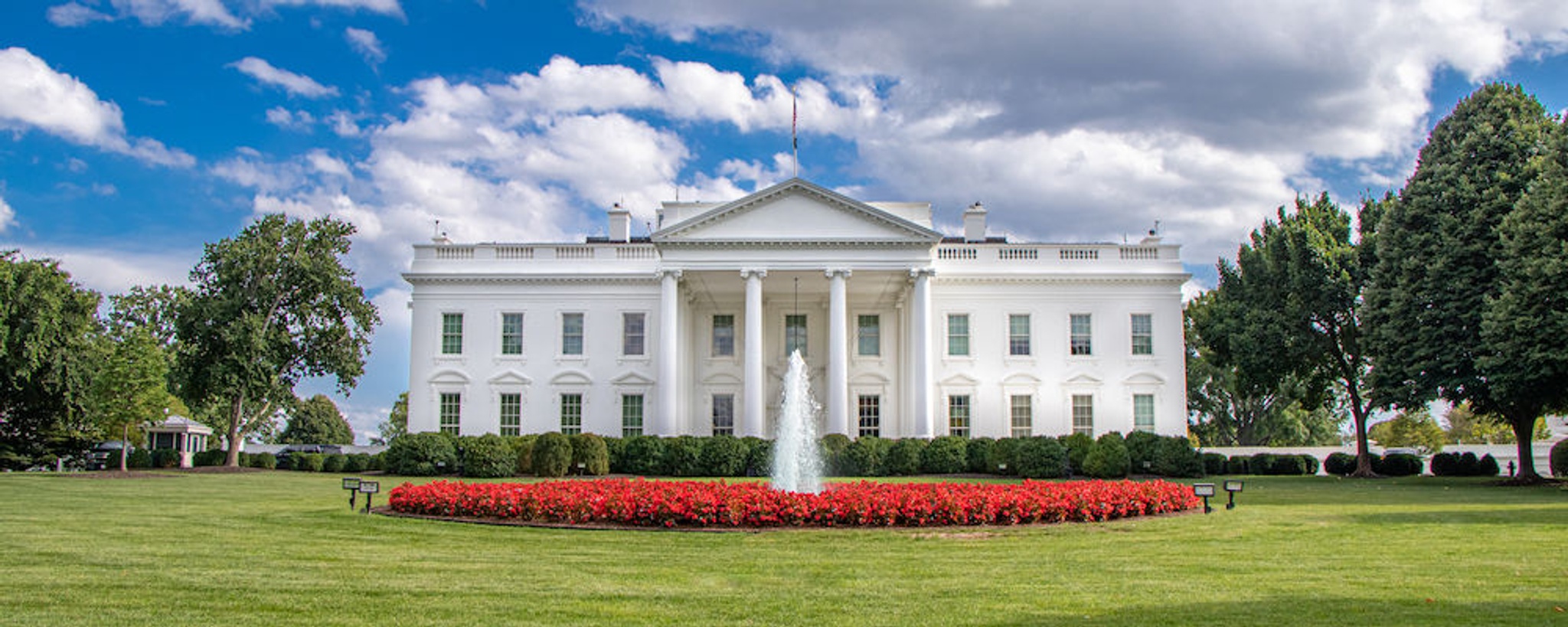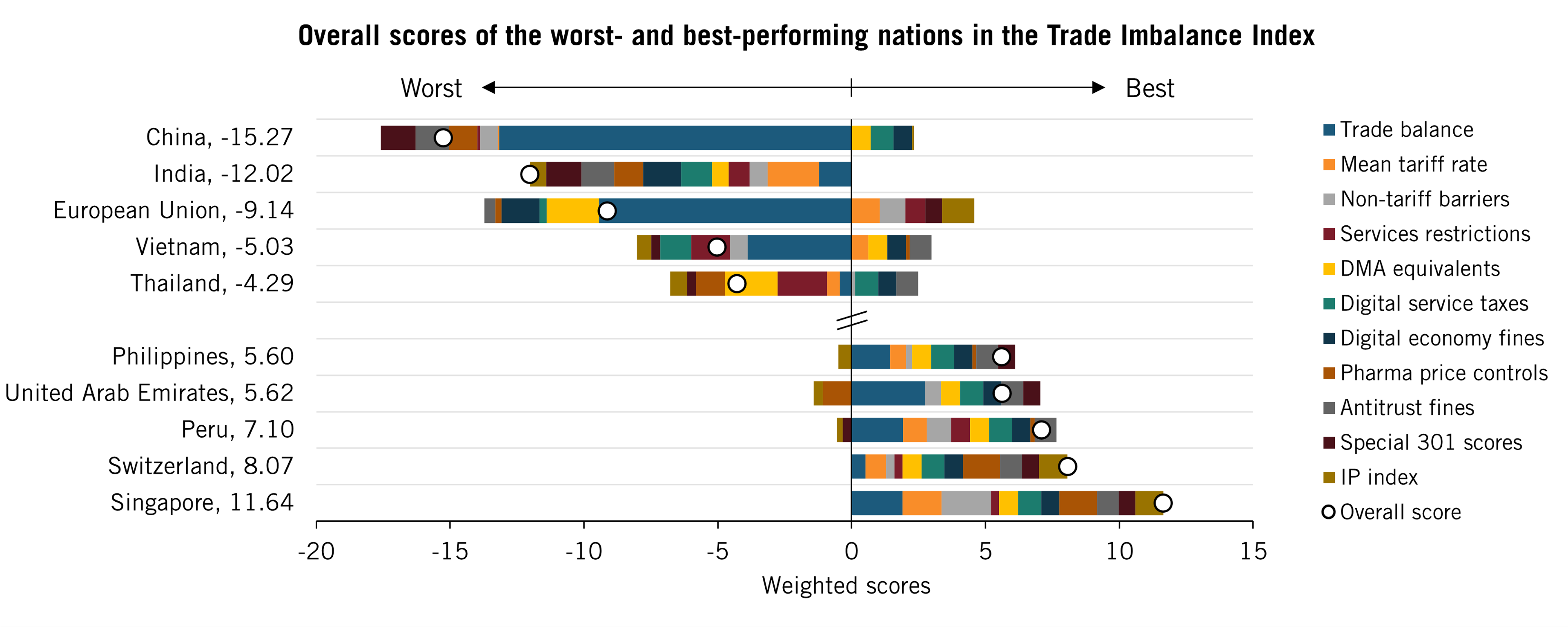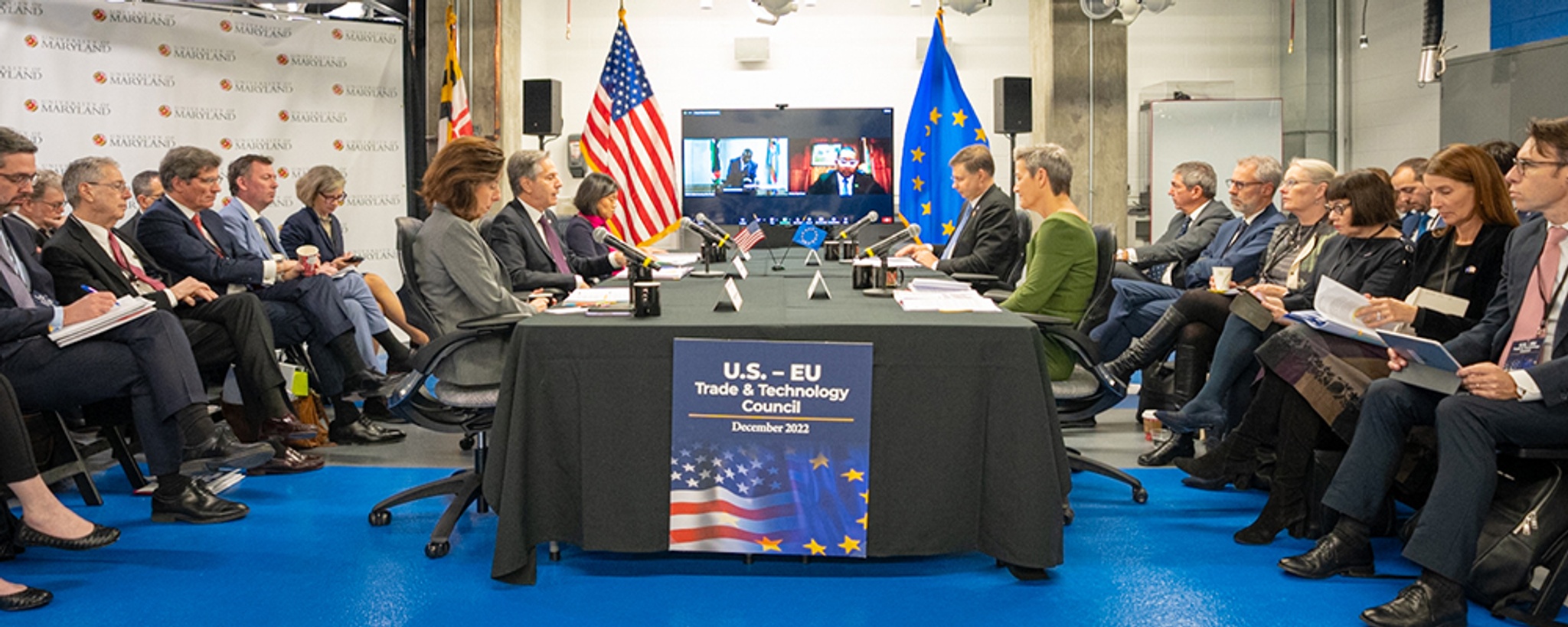Trade
Navigate forward to interact with the calendar and select a date. Press the question mark key to get the keyboard shortcuts for changing dates.
Navigate backward to interact with the calendar and select a date. Press the question mark key to get the keyboard shortcuts for changing dates.
Growing the innovation economy requires tight and deep integration of global markets—but with the critical caveat that this integration must come with strong commitments to openness and robust, market-oriented national competitiveness policies, not protectionist market distortions. ITIF's research focuses on how to promote robust trade, especially in innovation-based industries, and curb the spread of innovation mercantilism in all its forms.

Vice President, Global Innovation Policy, and Director, Center for Life Sciences Innovation
Information Technology and Innovation Foundation
Read BioFeatured
Letter to the Trump Administration Regarding Non-Tariff Attacks on US Tech Firms and Industries

Foreign governments are systematically deploying policies that constitute non-tariff attacks (NTAs) on America’s leading technology companies. ITIF and other think tank scholars and policy experts urge the administration to put these unfair NTAs on the U.S. trade agenda and insist that America’s trading partners address them.
The Trade Imbalance Index: Where the Trump Administration Should Take Action to Address Trade Distortions

As the Trump administration seeks to rebalance America’s trade relationships, it should focus the most attention on countries where U.S. industries face the worst trade distortions and imbalances, and where the greatest gains can be achieved for the U.S. economy. China, India, and the European Union top that list.
More Publications and Events
September 23, 2025|Events
2025 Global Trade and Innovation Policy Alliance Summit
The 2025 “South Meets North” Global Trade and Innovation Policy Alliance (GTIPA) Annual Summit will bring together leading local and international experts in Buenos Aires to exchange effective strategies in innovation-related policies.
July 7, 2025|Blogs
The Tortured Logic of Digital Services Taxes
Policymakers must justify why they should be allowed to tax the major digital companies differently from the leading firms in other industries. This challenge explains why so much of the DST debate has centered around obscure and abstract notions of a company’s “physical presence” and whether the company’s users “create value.”
July 7, 2025|Blogs
Time for Strategic Clarity on the US Trade Agenda
With limited bandwidth for negotiations, we can no longer afford to treat all trade sectors equally. The administration should focus on what matters most for America’s economic and national security future: defending our technology industry from foreign attacks.
July 7, 2025|Blogs
Free Trade Protectionism: U.S. Tariffs Are Creating a New Trade Policy Paradox
As U.S. tariffs rise, countries are protecting themselves from American trade policy while cutting new free trade deals elsewhere. A new GTIPA report explores how this paradox could sideline the United States in the next global trade order.
July 3, 2025|Events
US-Korea Trade at a Crossroads: How Should Korea Respond to Trump-Era Tariff Negotiations?
Watch the high-level discussion presented by ITIF’s Center for Korean Innovation and Competitiveness featuring trade experts, regulatory analysts, and U.S.–Korea watchers from both sides of the Pacific.
June 30, 2025|Reports & Briefings
How America’s Trading Partners Are Reacting to US Tariffs
Global Trade and Innovation Policy Alliance (GTIPA) members from 17 countries analyzed how their economies are reacting to U.S. tariffs. Many countries are seeking to support their local producers and establish trade arrangements that are less reliant on the United States.
June 30, 2025|Blogs
If They Told You Wolverines Would Make Good House Pets, Prime Minister, Would You Believe Them?
If the Starmer government thinks for one minute that the PRC will allow the UK to expand exports of anything with any real strategic importance, it is gravely mistaken. It’s time for competitive realism.
June 29, 2025|Op-Eds & Contributed Articles
How Should Korea Negotiate With Trump Over Trade?
For Trump, it’s a new world and Korean President Lee Jae Myung and his administration needs to treat it as such by negotiating a new deal that preserves Korean market access to America in exchange for real concessions on what at the end of the day are relatively minor things for Korean economic competitiveness.
June 20, 2025|Blogs
German State Prioritizes Politics Over Practical Technology Solutions
Schleswig-Holstein’s move to drop Microsoft for open-source tools reflects costly digital protectionism driven by politics, not practicality. EU governments should focus on evidence-based tech procurement over nationalist agendas.
June 16, 2025|Blogs
Fact of the Week: Data Flow and Data Storage Prohibitions Could Have Sizeable Impact on Global GDP
When local data storage regulations are open or with pre-authorized safeguards, global exports are expected to rise by 3.6 percent and global gross domestic product (GDP) is expected to increase by 1.77 percent. When regulations are more stringent against different geopolitical blocs, global exports are expected to decline by 1.76 percent while GDP is expected to fall by 0.94 percent. Regulations that prohibit the flow of data also have a sizable impact with exports declining by 8.45 percent and GDP declining by 4.53 percent.





